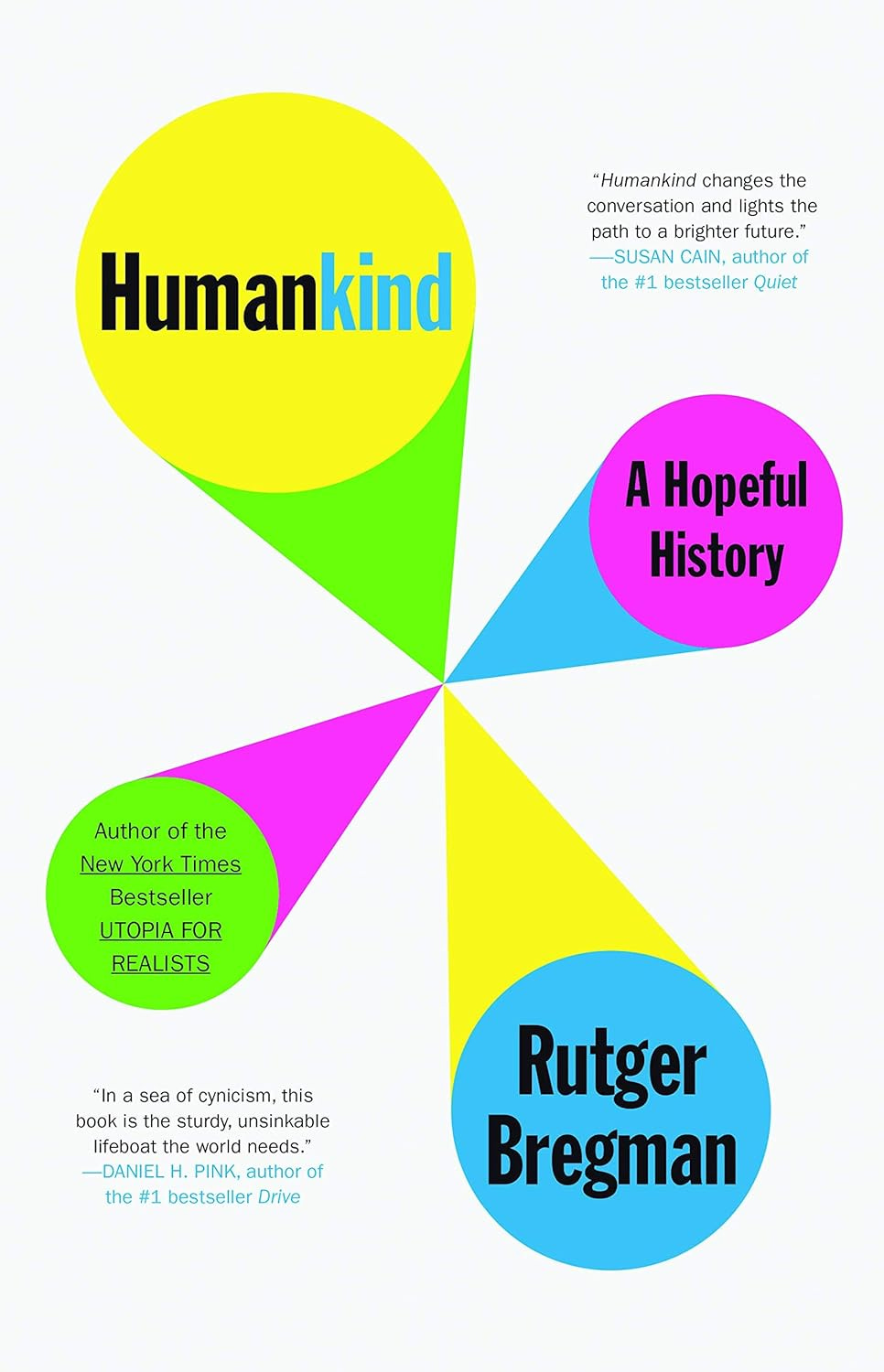Humans Are Fundamentally Good and Kind
The Perception of the Human Race As Civilized Savages Is Mistaken--Civilization Is Catching Up to Our Innate Kindness
When you purchase an item after clicking a link here, we may earn a commission. It’s an easy way to support our work.
I just finished reading the 2020 book Humankind by Rutger Bregman. I recommend it without hesitation!
Most of us are inclined to think of human beings as civilized by polite society. We see ourselves often as having emerged from barbarism to modernity with its rules and orders, reducing our native tendencies to selfishness and cruelty.
To make the point, early in the book, Rutger shares media accounts of violence and looting in New Orleans following Hurricane Katrina. Most of us recall the coverage, including video of looters.
Research conducted in the months and years that followed got little attention but rewrites much of the narrative. Looters were often organized groups of young people who were gathering emergency resources for people trapped in their homes by the floods. Police officers sometimes participated in these efforts. They were saving lives.
One report of shots fired was ultimately tracked back to a small explosion that sounded like a gunshot. Reports of violence in the Superdome were exaggerated; several people died, but the only death that was not caused by the storm was a suicide.
The researchers concluded that the storm did not cause people to descend into chaos but that compassion and order reigned in the days following Katrina. Our perception that it was otherwise results, Rutger says, from media reports rather than reality.
The entire book is full of evidence that our fundamental nature is good rather than bad, kind rather than cruel.
One piece of evidence for this is the now familiar story of Christmas Day 1914 in World War I.
With Christmas celebrations in the air on Christmas Eve, German soldiers began singing Christmas carols. The British soldiers answered in kind. After singing at each other for a time, they began singing together. Then, soldiers began braving the no-mans-land between the trenches, trading small treats and favors. Christmas Day arrived with an informal cease-fire. Soldiers played soccer and worked together to bury the dead.
For seventy years, stories of that spontaneous eruption of peace between warring sides from their trenches were treated as myths. It was not only true, Rutger shows, but broadly true.
Up and down the front lines, about 100,000 soldiers participated in the Christmas truce. Some refused to ever fire a weapon on the “enemy” again. In some cases, verbal agreements were made to fire over one another’s heads when ordered to shoot.
This actually isn’t that unusual. The vast majority of modern war casualties result from deploying weapons where those who fire cannot see the individuals they will kill. In past wars, most soldiers returned home without ever killing anyone—some never fired.
In the Civil War, not only were weapons of dead soldiers often found to be loaded, some were loaded with multiple rounds. One was discovered with 20 rounds loaded in the gun. Apparently, to appear busy, soldiers sometimes repeatedly loaded their weapons rather than fire under orders to do so.
If you are skeptical about these conclusions, don’t accept my quick summary of the book as being the full case for human goodness. Read the book.
If you accept the premise, you’ll love the book. It will reinvigorate your faith in humanity.
We are good. We can be better, but we’re starting from a position of strength. The more we treat each other as good, the better the world will become.




Fascinating insights shared in this article! It's a powerful reminder that our inherent goodness often shines through, even in the face of challenging circumstances like Hurricane Katrina or wartime. The stories of compassion and cooperation among people are truly heartwarming. It reinforces the belief that as a society, we have the potential to build a better world by recognizing and nurturing the goodness in each other.